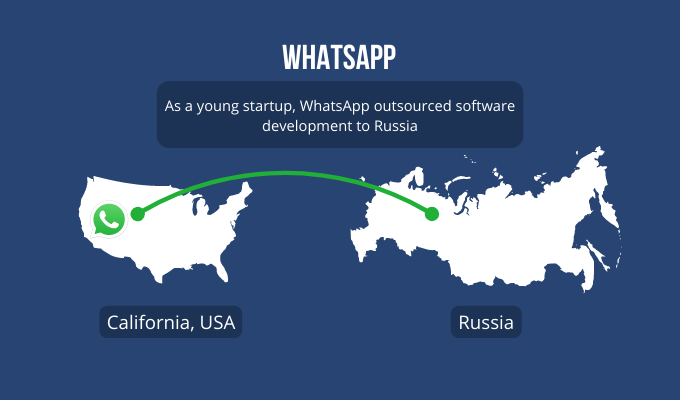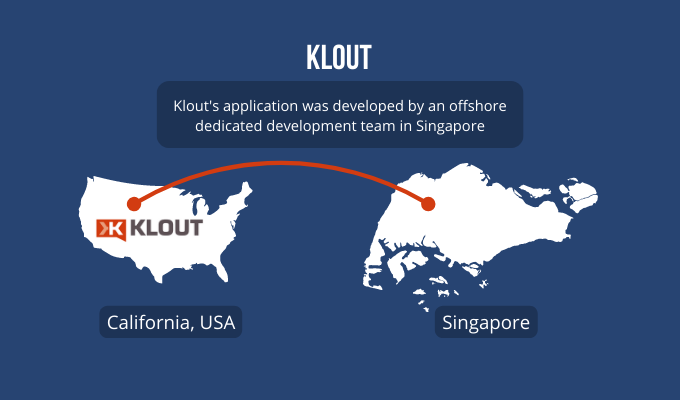“1 in 5 organizations Globally are having trouble finding skilled tech talent.”
– ManpowerGroup: Great Realization 2022
A recent report by Manpower shows that global talent shortages have reached a 16-year-high, especially in the technology and data industry in bigger economies like the US and China. IT, Software, and Data roles are highly sought after in developed economies and with talent being scarcer than ever, businesses are looking beyond geographies to find technical talent. Hiring local talent has become highly expensive which has compelled more businesses to consider outsourcing.

While software development outsourcing is not a new phenomenon, it has changed and evolved during the Covid-19 pandemic. The past couple of years has proven that working remotely is a successful alternative for most businesses, which means that the geographical barriers that companies were working against before are practically non-existent now. This along with the shortage of tech talent has resulted in the expansion of the outsourcing industry, especially the rising trend for offshore software development.
Talk to our experts and hire a team of top-notch software engineers
Contact Us
Offshore Software Development In Numbers
Offshore software development simply means outsourcing a software development project (partially or fully) to a third-party vendor located in a different country and time zone. Oftentimes, businesses outsource the full project or specific functions by hiring individual software developers or by partnering with an offshore software development company.
“The global IT outsourcing market was valued at USD 318.5 billion in 2020, and it is expected to reach USD 425.19 billion by 2026”
The official stats indicate that offshore software development makes up the majority of the global IT outsourcing market and it is predicted to grow at a steady pace in the coming years. The upward trend in the demand for offshore software development services is driven by two major changes: The general perception in favour of remote work and the global talent shortage faced by many economies.
Countries like India, Ukraine, Israel, Sweden and Pakistan are some of the most common locations for offshore software development. World Bank reports that for many of these economies, information & communications technologies (ICT) services constitute a major part of their yearly exports and in most cases account for 30% of total exports. The map below indicates the countries with the highest IT services export stats.
So why are countries in Eastern Europe and Asia popular choices for offshore software development? And what makes the offshore outsourcing approach so successful? Let’s find out.
Benefits of Offshore Software Development
It is commonly assumed that offshore software development is just an option for businesses to hire cheap talent from far-off locations. A way out for businesses that are in a financial crunch. Although this is essentially true, offshore outsourcing goes beyond cost-saving. It offers a number of other perks and benefits to businesses which is why it has become a popular digital operating model for many tech businesses worldwide.
1. Lower cost
Software developers, especially those with vast experience and the most sought-after skills, tend to be expensive. For IT executives in North America hiring such high-quality resources locally means paying more than £150 per hour, while offshore outsourcing can be a fraction of the cost. They can find resources with the same skills and experience for less than £50 per hour in most offshore locations. This significant cost-saving is one of the most important benefits of offshore software development, especially for young startups and companies on tighter development budgets.
2. Access to a diverse talent pool
The acute shortage of technical talent globally is one of the main reasons why tech owners are outsourcing services to locations like Eastern Europe and Southeast Asia. The talent that entrepreneurs struggle to find locally is abundantly available in offshore countries and outsourcing opens up a world of resourcing opportunities for them. Offshoring gives companies access to a diverse pool of highly-experienced software engineers who are not only well-versed in cutting-edge technologies but are also familiar with working on projects for international clients.
3. Flexibility and scalability
Offshore software development gives businesses the flexibility to hire talent as per their current needs. Whether they require a full-scale development team for a certain project duration or individual resources to extend their existing team, they can hire with ease and flexibility. Businesses that require a full-scale development team which includes developers, QA engineers, designers, project managers, and business analysts can very easily hire resources for all these functions from a single offshore vendor. This makes the job simple and quick for businesses.
4. Faster time-to-market
While sourcing software teams onshore can take months, IT leaders can recruit offshore software teams in a matter of weeks. By partnering with an offshore development company, they can access their partner’s in-house experienced resources and fast-track the hiring process. For product owners, this means they can go into the product development process quicker and reduce the time to market.
5. More time to focus on core business activities
Many IT leaders prefer outsourcing to avoid the added stress of managing a separate software development department. Hiring offshore developers gives them more time to focus on other important business activities while their offshore partner takes care of the day-to-day running and management of the team of developers. The offshore company looks after the salaries, overheads, work schedules, and team productivity, allowing them to invest their time in core areas of business like finance, marketing, and growth.
Going for Offshore Development Services: When To Do It
Offshore outsourcing is a flexible and cost-effective option for businesses, and here are some situations when it is ideal for businesses to move over their operations to an offshore development team.
1. Budget constraints
Offshore software development makes the most sense when a business has a limited budget to spend on a development team. When local talent is expensive and beyond the reach of a business, they should consider offshoring because of the guaranteed cost advantage.
2. Specific expertise
When a business needs to hire resources with a specific talent, skill, or expertise with a certain technology, they should seek offshore development services. Some talents can be scarce or very expensive to hire in some locations, and the best-case scenario would be to go beyond geographical barriers to acquire the talent.
3. Short development timeframe
Recruiting an in-house team of developers is a time-consuming process that can take several months. If a business has a short development timeframe and they wish to hasten the process, it should consider offshore software development.
4. Round-the-clock maintenance and support
An offshore development team is suitable when a software product-based business requires round-the-clock maintenance and support. You can hire an offshore dedicated team to maintain the product and timely resolve technical issues faced by the customers.
Offshore Software Development Success Stories
From WhatsApp to Slack, offshore software development has helped various businesses save costs and get access to skilled talent from around the world. Offshoring has directly contributed to their growth and profitability. So, if you are an entrepreneur still deliberating over going offshore here are three world-famous examples of successful offshore outsourcing.

Whatsapp – the world-leading free messaging application acquired by Facebook for $16 billion – has built its foundation on offshore software development.
With a small starting capital ($250,000 seed funding), WhatsApp founders Brian Acton and Jan Koum outsourced the development of the app to developers in Russia due to lower labour costs in the region. One of the first iOS engineers for Whatsapp was a Russian developer, Igor Solomennikov, who the founders hired through RentACoder.com.
Although WhatsApp is headquartered in the USA and it relocated most of the developers from the original team later, offshore development has much to contribute to its success today.
Slack

Slack recently reached a valuation of $17 billion in 2020 and proves to be a phenomenal outsourcing success story. The channel-based messaging software with 10+ million users outsourced the design and development of its world-famous app to MetaLab – a Canadian interface design company. By relying on MetaLab’s expertise, they were able to create a unique Slack experience and grow their user base multifold. Today Slack has 12+ million users including top companies like IBM, BBC, and Oracle.
Klout

Klout was another successful example of hiring an offshore software development team. Klout founder Joe Fernandez hired a development team in Singapore that developed the beta version of the social influence analytics software. The app received $40 million in funding for further development and relied on offshore software development for the longest time.
Klout was acquired by Lithium Technologies for $200 million in 2014 and later closed down in 2018 under the new ownership.
Wrapping Up
The data for offshore software development proves that businesses are breaking away from traditional models of hiring talent. The upward trend in the offshore development market’s graph indicates that offshoring is not just a cost-saving strategy. It is a viable alternative to acquiring talent that is already in short supply. The pandemic has allowed businesses across industries to adapt to remote working and with the growing shortage of technical resources, most businesses see offshore outsourcing as a means to stay competitive in the market.
Offshore software development makes good financial and business sense, and although it may seem daunting, offshore software development is not as difficult, as long as you plan properly and understand the risks involved. WhatsApp, Slack, and Klout are all success stories that prove that an offshore partnership can help businesses achieve exceptional growth.





